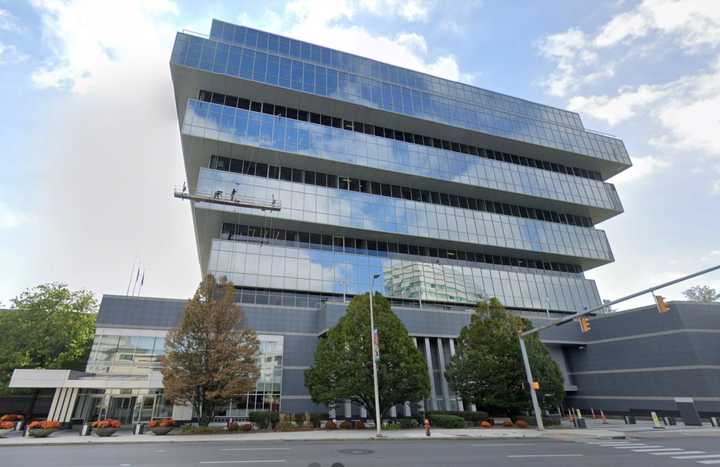New Jersey expects to receive more than $110 million from the deal, state Attorney General Gurbir S. Grewal said Thursday.
As part of the settlement, the Sackler family must surrender ownership of the bankrupt drug company.
They also must release more than 30 million family and Purdue Pharma documents that outline their roles in an opioid epidemic that has killed hundreds of thousands of Americans.
The agreement, which still must be approved by a federal bankruptcy court judge, protects the Sacklers and their associates from future opioid lawsuits.
Two dozen states, the District of Columbia and several local governments had filed nearly 3,000 lawsuits challenging what Grewal called a “greed-driven opioid marketing and sales strategy devised by Purdue and eight individual Sackler defendants” to make themselves “unimaginably rich.”
The Sacklers flooded the market with pain pills by encouraging “risky prescribing practices,” marketed the opioids as “rarely addictive” and “targeted vulnerable new patient populations such as the elderly,” the New Jersey attorney general said.
“With their reckless push to drive up profits by saturating society with highly-addictive opioid painkillers, the Sacklers and Purdue Pharma harmed millions of individuals and families in New Jersey and across the country,” Grewal said.
The defendants “were morally bankrupt before they ever declared actual bankruptcy, and we were determined not to let them take the easy way out,” he added. “We were determined to make them pay.”
Fifteen states who’d opposed a deal finally relented on Wednesday, following weeks of intense negotiations. A filing that night by a mediator in U.S. Bankruptcy Court in White Plains lays out the terms.
The agreement “put an end to the delays and legal maneuvering that could possibly continue for years and across multiple continents,” New York Attorney General Letitia James said.
It also “gets one of the nation’s most harmful drug dealers out of the opioid business once and for all,” she added.
The money will go “into communities ravaged by opioids on an accelerated timetable” for prevention, education, and treatment programs, James said.
Massachusetts Attorney General Maura Healey called the fine included in the settlement “the most that individuals have ever paid for breaking the law.”
And although the terms were “unprecedented,” Healy said it isn’t enough.
“You cannot put a price on a life, nor can we ignore that the Sacklers abused our justice system,” she said. “We need federal legislation to close the loophole they exploited in bankruptcy court.”
At this point, New Jersey, New York, Pennsylvania and Massachusetts are joined by Colorado, Hawaii, Idaho, Illinois, Iowa, Maine, Minnesota, Nevada, North Carolina, Virginia, and Wisconsin in approving the deal.
Nine other states and Washington, D.C. have yet to sign off on an agreement.
The Sackler family will pay out the money to the participating states over the next nine years, Grewal said.
“New Jersey’s share of the overall resolution will be approximately 2.75 percent of the funds available to the states…in an amount likely to exceed an estimated $110 million,” the attorney general said.
On top of the $4.325 billion to the states, thousands of individual victims will also receive compensation from the Sacklers and their Connecticut-based company as part of the bankruptcy process.
The documents they must be surrender under the deal include “evidence from lawsuits and investigations of Purdue over the past 20 years, including deposition transcripts, deposition videos, and 13 million documents,” Grewal said.
Purdue will also be required to turn over more than 20 million additional documents, including “attorney-client privileged communications about the original FDA approval of Purdue’s flagship opioid painkiller OxyContin, as well as tactics used by Purdue to promote opioids,” the attorney general said.
Also included must be “every non-privileged email at Purdue that was sent or received by every member of the Sackler family who sat on the Board of Directors of Purdue Pharma or worked at the company,” he added.
The Sacklers will be permanently banned from the opioid business under the deal. They also must surrender $175 million in assets to the trustees of a foundation dedicated to abating the opioid epidemic.
Family members also will be prohibited from “requesting or permitting any new naming rights in connection with charitable or similar donations or organizations for the next nine years,” Grewal said.
Last year, company officials pleaded guilty to federal criminal charges and agreed to pay $225 million to the federal government. In a separate civil settlement, the Sacklers agreed to pay the federal government $225 million while admitting no wrongdoing.
Purdue will be sold or wound down by the end of 2024, authorities said.
Click here to follow Daily Voice Bergenfield and receive free news updates.
